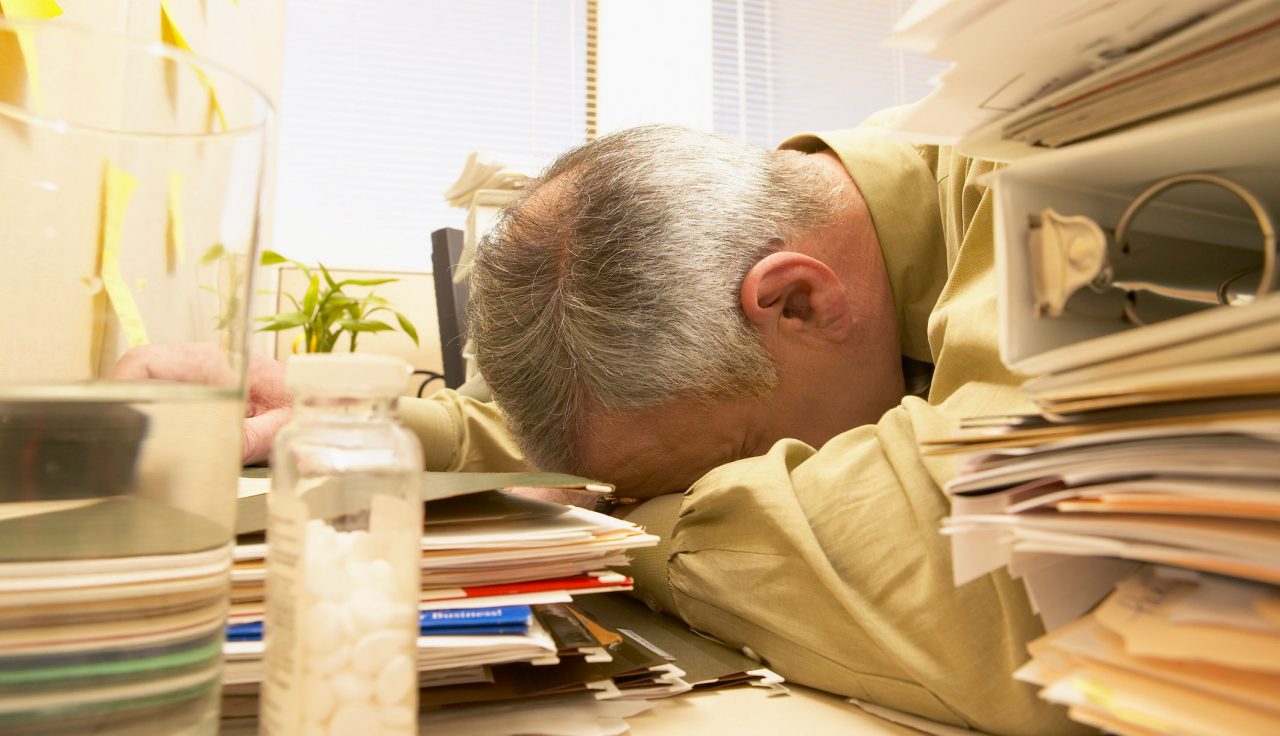Job Stress and Substance Abuse

People cope different ways, but many aren’t healthy or safe.
Happy hour at the end of the workweek is one way to blow off some steam, but the National Council of Alcoholism and Drug Dependence (NCADD) reports that one quarter of workers report drinking during the workday at least once in the past year.
The NCADD also reports that of the estimated 14.8 million Americans who use illegal drugs, more than two-thirds have at least part time jobs, and 20 percent of workers and managers report that a coworker's drinking or drug use – either on or off the job – put them in jeopardy.
“The truth of the matter is, drug and alcohol abuse affects all industries and employment levels, leading to lost productivity, injuries, theft, absenteeism and even death. And one of the issues that fuels substance abuse is work-related stress,” writes Robert Yagoda.
YOU MIGHT ALSO LIKE: What Anxiety Feels Like
Some of the reasons for the substance abuse included work pressure, peer pressure, the job itself, a lack of good coping skills, and a “vicious cycle” of work stress, substance abuse, poor performance, and more abuse.
Some jobs just go hand in hand with substance abuse. Those include mining and construction, first response, management, real estate, transportation, food service, and nursing.
“For example, food service workers tend to work around alcohol and use it to decompress when their shifts are through,” Yagoda writes. “Some nurses turn to drugs and/or alcohol to cope with the high stress and long hours, and their close proximity to controlled prescription drugs increases the chances of becoming addicted.”
About 25 percent of Americans report experiencing high levels of stress, according to Sober Work Place. People deal with stress in different ways. Some might meditate, exercise, or occupy themselves with a fulfilling hobby that’s relaxing.
But you might turn to abuse of alcohol and drugs. Several studies have shown a link between substance abuse and chronic stress. Those studies have also demonstrated that prolonged stress actually alters the brain, affecting the parts that deal with impulse control and higher-level thinking.
YOU MIGHT ALSO LIKE: Managing Work-Related Stress
“In today’s world of high-pressure jobs and economic ups and downs, people are experiencing high levels of stress in the workplace in increasing numbers,” according to Sober Work Place. “Employees with anxiety disorders are about twice as likely than other employees to abuse substances. Employees who have problems with substance abuse tend to cause more problems and risk in the workplace.”
There’s even the argument, one that’s overlooked, that you become dependent on alcohol and drugs due to the stress you endure caused by bullying and harassment on the job.
Often that’s accompanied by “threat, coercion, long working hours and job insecurity,” according to Bully Online.
At the center of the problem is the “serial bully,” which can drive you to become dependent on drugs as relatively benign as caffeine or substances far worse.
Writing specifically about alcohol, researcher Michael R. Frone of the University of Buffalo centers on the alienation/stress paradigm, which proposes that your drinking may be a response to “physical and psychosocial” qualities of the work environment.
“Although external factors clearly influence employee drinking habits, a second perspective views the causes of employee alcohol use as arising, at least in part, from the work environment itself,” Frone writes.
The alienation/stress paradigm proposes that employee alcohol use could be a response to work demands, an employee’s level of boredom, having no part in decision making, and “interpersonal conflict” with your coworkers and supervisors.
To combat stress related substance abuse, you should try to reduce stress in healthy ways such as with exercise, healthful eating, and mindful meditation substance abuse, says Yagoda.
He also suggests a career change. “Over time, stress can do significant damage to the body and mind,” he writes. “When a job becomes so stressful that it negatively affects physical and psychological health, it may be time to think about switching to a different position or career.”
YOU MIGHT ALSO LIKE: The Mind-Body Approach to Stress Reduction
Updated:
April 01, 2020
Reviewed By:
Christopher Nystuen, MD, MBA